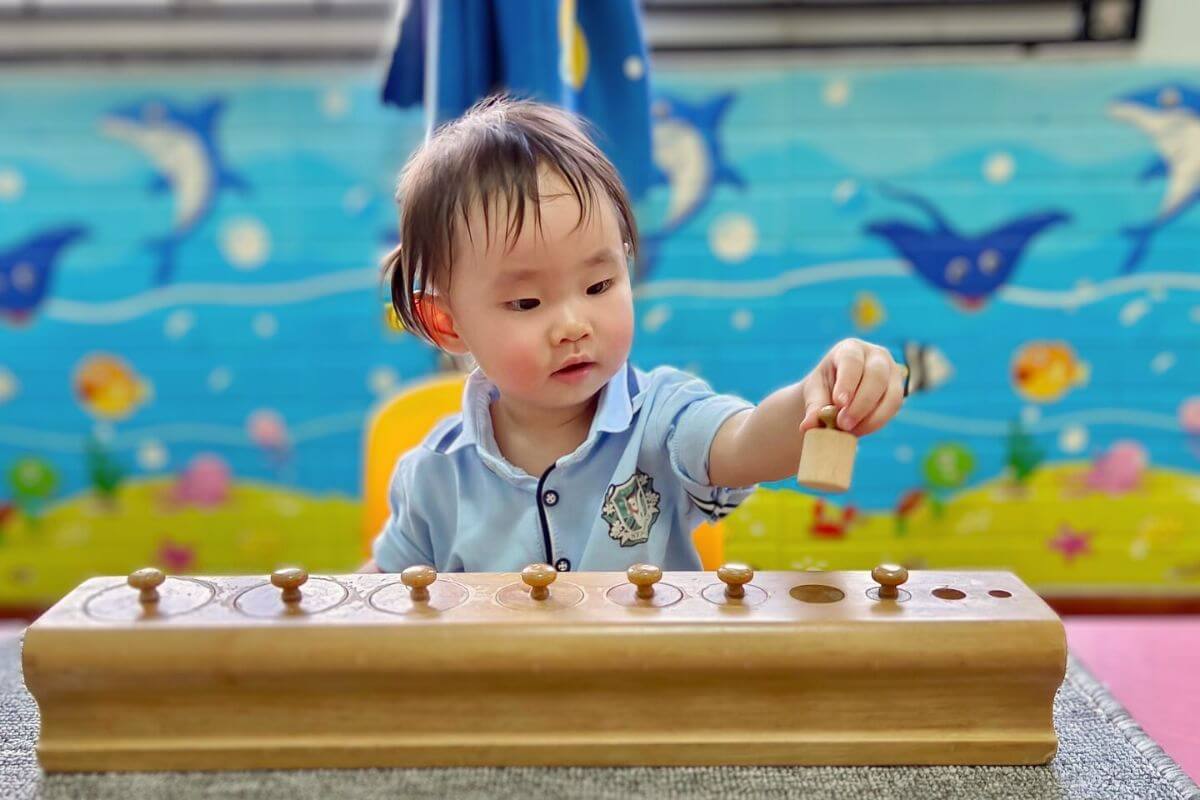Introduction to Cognitive Development in Early Childhood
Definition and Importance
Cognitive development refers to the way a child learns to think, reason, and use language, which is crucial in shaping their understanding of the world. Jean Piaget, a renowned developmental psychologist, posited that cognitive development is a progressive reorganisation of mental processes resulting from biological maturation and environmental experience. Children interpret the world around them, gain understanding, and develop cognitive skills in a sequence of stages (Piaget, 1952).
Overview of Cognitive Development Stages
Piaget identified four stages of cognitive development:
- Sensorimotor Stage (Birth to 2 years): Learning through physical interaction with the environment.
- Preoperational Stage (2 to 7 years): Characterized by symbolic play and language development.
- Concrete Operational Stage (7 to 11 years): Development of logical thinking.
- Formal Operational Stage (11 years and older): Emergence of abstract reasoning.
The Essence of Play in Early Learning
Play: A Natural Learning Process
Play is often described as the work of children. Through play, children explore, experiment, and understand the world around them. Dr. David Whitebread, a senior lecturer in psychology and education at the University of Cambridge, highlights the significance of play in early development, emphasizing its role in building cognitive, social, and emotional well-being (Whitebread, 2012). To understand how current affairs shape a preschooler’s cognitive development through play, read more about the dynamic interplay between external events and early learning.
Types of Play and Their Cognitive Benefits
Different types of play contribute to various aspects of cognitive development:
- Sensorimotor Play: Enhances fine motor and gross motor skills.
- Constructive Play: Involves building or making things, crucial for problem-solving skills.
- Pretend Play: Facilitates language, imagination, and social-emotional skills.
Theories Supporting Play in Cognitive Development
Piaget’s Theory of Cognitive Development
Jean Piaget’s theory suggests that children construct an understanding of the world through their experiences. He believed that play is critical in consolidating new concepts and skills acquired in earlier stages of cognitive development (Piaget, 1962).
Vygotsky’s Social Development Theory
Lev Vygotsky emphasized the social context of learning. He argued that play is a primary means of cognitive development, allowing children to stretch their cognitive abilities and engage in higher levels of thinking through social interaction (Vygotsky, 1978).
Contemporary Perspectives
Modern research continues to support these theories. A study published in the “Early Childhood Education Journal” demonstrates how play-based learning positively impacts children’s academic and social skills (Trawick-Smith, 2014).
Practical Play Activities and Cognitive Growth
Role-Playing and Social Skills
Role-playing games are a powerful tool in developing cognitive skills. According to Lillard et al. (2013), pretend play allows children to practice language skills, problem-solving, and empathize with others, which are crucial components of social intelligence. This type of play often involves negotiating roles, rules, and narratives, which enhances cognitive flexibility and social cognition. For insights on how positive teacher-child relationships can further enhance these skills through play, explore our dedicated article.
Puzzles and Problem-Solving
Puzzles are not just entertaining; they’re a form of cognitive workout. Studies have shown that engaging with puzzles enhances a child’s spatial skills and problem-solving abilities (Levine et al., 2012). These skills are foundational for mathematical and scientific thinking.
Creative Arts and Imagination
Creative arts play, such as drawing, painting, and craft, stimulates imagination and creative thinking. A study by Winner et al. (2013) suggests that arts-rich experiences in early childhood can lead to higher levels of creativity, which is a key component of cognitive development.
Integrating Play in Early Childhood Education
Strategies for Incorporating Play at Starshine Montessori
At Starshine Montessori, play is not an add-on; it’s an integral part of the learning process. The curriculum is designed to blend structured and unstructured play, ensuring children experience a variety of play types. This could include guided play where educators scaffold learning experiences, and free play, where children explore and learn at their own pace. Learn more about how the Montessori method equips children for real-world success through play-based learning.
Balancing Structured and Unstructured Play
The balance between structured and unstructured play is vital. While structured play can be used to introduce and reinforce specific concepts, unstructured play offers children the freedom to explore their interests and develop creativity. A balanced approach ensures that children benefit from both guided learning and independent discovery (Hirsh-Pasek et al., 2009).
Guidance for Parents: Facilitating Play at Home
Everyday Activities to Boost Cognitive Skills
Parents play a vital role in their child’s cognitive development through play. Simple activities like cooking together, which involves measuring and sorting, can enhance mathematical skills. Storytelling and reading foster language development and imagination. These activities, as suggested by Weisberg et al. (2013), not only support cognitive skills but also strengthen the parent-child bond.
The Role of Parents in Play
The role of parents in play is to guide, facilitate, and engage. It’s not about directing play but rather providing an environment where children feel safe to explore and express their creativity. This can include providing diverse play materials, asking open-ended questions, and participating in play without dominating it (Ginsburg, 2007).
The Future of Play in Education
Emerging Trends and Research
In the evolving landscape of early childhood education, play continues to be a critical component. Emerging trends focus on technology-enhanced play, incorporating digital tools in a way that complements traditional play methods. Research is increasingly looking at the intersection of play, technology, and learning outcomes (Zosh et al., 2018). For a deeper understanding of the Montessori approach and its relevance in the modern world, read our beginner’s guide for parents.
Preparing Children for a Dynamic World
As the world becomes more dynamic and interconnected, the skills acquired through play – like adaptability, creativity, and problem-solving – become even more essential. Play-based learning equips children with these skills, preparing them to navigate and contribute to an ever-changing world.
Conclusion
Recap of Key Points
This article has explored the multifaceted role of play in cognitive development, emphasizing its importance in early childhood education. We have seen how different types of play contribute to various cognitive skills and how the integration of play at home and in educational settings like Starshine Montessori can profoundly impact a child’s development.
Starshine Montessori’s Commitment to Holistic Development
At Starshine Montessori, we understand that play is not just an activity but a crucial part of a child’s learning journey. Our approach aligns with our mission to nurture each child’s unique potential, preparing them for academic success and lifelong learning. We remain committed to fostering an environment where play and learning go hand in hand, shaping the leaders of tomorrow.
References and Further Reading
Piaget, J. (1952). The Origins of Intelligence in Children. International Universities Press Inc.
Whitebread, D. (2012). The Importance of Play: A report on the value of children’s play with a series of policy recommendations. University of Cambridge. https://www.importanceofplay.eu/IMG/pdf/dr_david_whitebread_-_the_importance_of_play.pdf.
Piaget, J. (1962). Play, Dreams and Imitation in Childhood. Norton.
Vygotsky, L. S. (1978). Mind in Society: The Development of Higher Psychological Processes. Harvard University Press.
Trawick-Smith, J. (2014). Early Childhood Education Journal. The Influence of Play on Child Development: A Meta-Analysis. Springer.
Lillard, A. S., et al. (2013). The Impact of Pretend Play on Children’s Development: A Review of the Evidence. Psychological Bulletin, American Psychological Association.
Levine, S. C., et al. (2012). Early Puzzle Play: A Predictor of Preschoolers’ Spatial Transformation Skill. Developmental Psychology, American Psychological Association.
Winner, E., et al. (2013). Studio Thinking 2: The Real Benefits of Visual Arts Education. Teachers College Press.
Hirsh-Pasek, K., et al. (2009). A Mandate for Playful Learning in Preschool: Presenting the Evidence. Oxford University Press.
Weisberg, D. S., et al. (2013). Talking about Art: Encouraging Children to Understand and Create. Child Development, American Psychological Association.
Ginsburg, K. R. (2007). The Importance of Play in Promoting Healthy Child Development and Maintaining Strong Parent-Child Bonds. Pediatrics, American Academy of Pediatrics.
Zosh, J. M., et al. (2018). Learning through Play: A Review of the Evidence. The LEGO Foundation.
Follow us on social media to stay updated on our latest updates and happenings:







Comments are closed